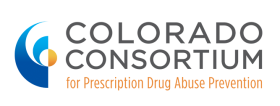
Psychological Factors Influencing the Transition from Acute to Chronic Pain
This video module provides an in-depth overview of the neuroscience underlying pain and the psychological factors that contribute to chronic pain. Pain recovery therapies are an emerging modality within psychotherapy to reduce, and sometimes eliminate, chronic pain without medications. The science behind and growing evidence for the implementation of pain recovery therapies is described in this 55-minute module.
Target Audience
MDs/DOs, Primary Care, Emergency Medicine , Hospitalist, Surgeons, OB/GYNs, Neurologist, Dentists and Oral Surgeons, Physical medicine and rehabilitation, Occupational medicine, Pharmacists, Nurse practitioners and other advanced- practice registered nurses, Physician assistants
Learning Objectives
Examine how nociplastic pain differs from nociceptive and neuropathic pain in its presentation and underlying mechanisms
Analyze the core principles of a new category of psychological treatments for chronic pain and pain recovery therapies
Identify the core techniques, efficacy, and mechanisms of pain reprocessing therapy (PRT)
Yoni K. Ashar, PhD is an assistant professor at the University of Colorado Anschutz Medical Campus. He completed his doctorate in clinical psychology and neuroscience at the University of Colorado Boulder and an NIH-funded postdoctoral fellowship at Weill Cornell Medicine. Dr. Ashar directs a research laboratory using functional MRI brain imaging, natural language processing, and other clinical and computational tools to understand how mind and brain processes influence health, especially chronic pain. A main research focus is investigating a new class of psychological and neuroscience-based treatments aiming for recovery from chronic pain.
Accreditation: This activity has been planned and implemented in accordance with the accreditation requirements and policies of the Iowa Medical Society (IMS) through the joint providership of Compass Healthcare Collaborative and Colorado Consortium for Prescription Drug Abuse Prevention. Compass Healthcare Collaborative is accredited by the IMS to provide continuing medical education for physicians.
Designation: Compass designates this live activity for a maximum of 1.0 AMA PRA Category 1 Credit(s)™ Physicians should claim only the credit commensurate with the extent of their participation in the activity.
Commercial Support: This activity was developed without support from any ineligible company. *The ACCME defines ineligible companies as those whose primary business is producing, marketing, selling, re-selling, or distributing healthcare products used by or on patients. Note: The ACCME does not consider providers of clinical service directly to patients to be commercial interests unless the provider of clinical services is owned, or controlled by, and ACCME defined ineligible company.
Disclosure: Compass adheres to the Standards for Integrity and Independence in Accredited Continuing Education. The content of this activity is not related to products or the business lines of an ACCME-defined ineligible company. None of the planners or moderators for this educational activity have relevant financial relationships to disclose with ineligible companies whose primary business is producing, marketing, selling, re-selling, or distributing products used by or on patients.
Available Credit
- 1.00 AMA PRA Category 1 Credit™

 Facebook
Facebook Twitter
Twitter LinkedIn
LinkedIn Forward
Forward